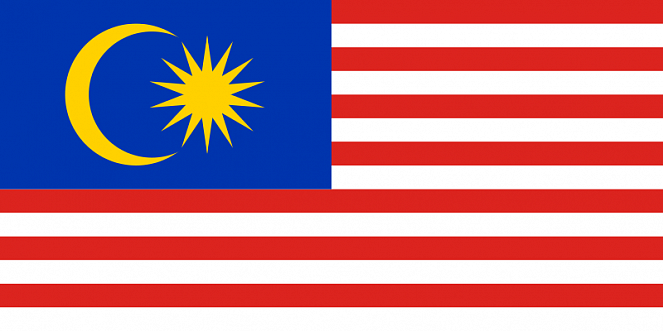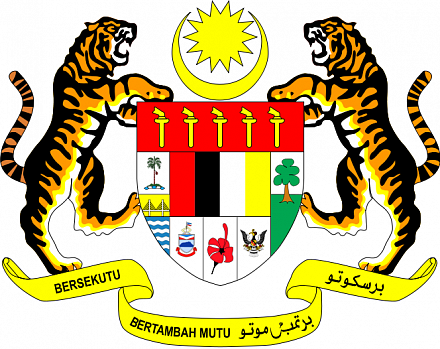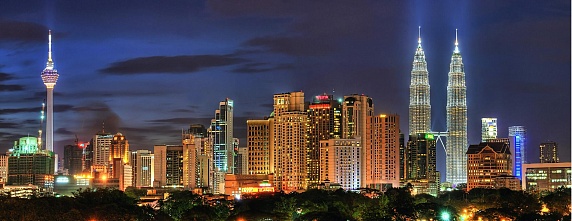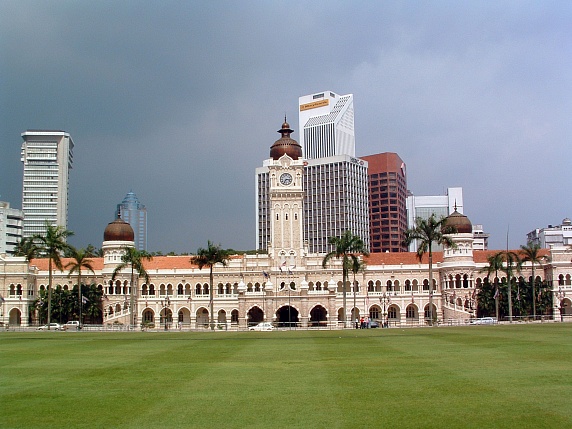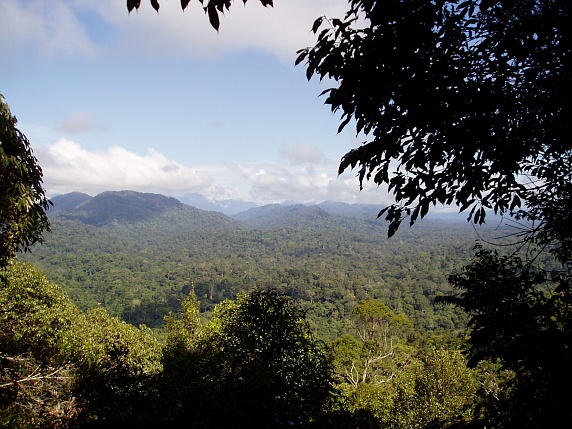 Малайзия
Малайзия
Foreign Minister Sergey Lavrov’s statement and answers to media questions during a joint news conference with Foreign Minister of Malaysia Saifuddin Abdullah, Moscow, November 21, 2019
Ladies and gentlemen,
I had talks with my Malaysian colleague Saifuddin Abdullah in a traditionally friendly atmosphere, as befits good and long-standing partners. Our relations are based on a long tradition of trust, mutual understanding and cooperation.
We discussed important issues on the bilateral agenda in line with the agreements reached in Vladivostok in September on the sidelines of the 5th Eastern Economic Forum between Russian President Vladimir Putin and Malaysian Prime Minister Mahathir Mohamad. We agreed to give additional impetus to cooperation in all areas covered by our leaders.
We emphasised the importance of the security dialogue. In this regard, we positively assessed the contacts between the Russian Security Council and our partners from the corresponding unit of the Malaysian Prime Minister’s Administration. Secretary of the Russian Security Council Nikolay Patrushev visited Kuala Lumpur in August this year. We agreed to continue cooperating on these matters.
We focused on trade and economic cooperation. Sustainable growth in trade gives us hope that this trend will continue. Trade increased by another 10 percent in the first nine months of this year to over $2.2 billion. This figure will grow significantly by the end of the year.
We noted the effective work of Russian businesspeople in Malaysia, and Malaysian businesses in Russia. Joint investments are being made and important industrial enterprises are being opened in Malaysia and Russia. In particular, a Malaysian company opened a wood processing plant in the Khabarovsk Territory recently. We agreed to maintain direct contacts between our business people, especially since they have important formats for this such as the Russian-Malaysian Business Council and the Russia-ASEAN Business Council, which is a platform for concluding mutually beneficial agreements.
We support the dynamic growth of relations in research and technology, culture, education and tourism. We welcome Malaysia’s interest in the Russian language and education in Russia. At least 1,200 Malaysian students are currently studying in our country. We agreed to resolve all issues related to practical training for these students.
This year we had an important event. In October, the Joint Russian-Malaysian Commission on Economic, Scientific, Technical and Cultural Cooperation met in Moscow for the first time where it reviewed all areas of bilateral cooperation and drew up corresponding action plans.
We discussed global challenges. Our positions coincide on key issues. We are on the same page when it comes to respecting international law, not undermining the agreements reached in a universal format, respecting the UN Charter, resolving crises and conflicts exclusively by peaceful means and respecting the identity of all peoples and their right to decide on their future.
We have also discussed regional affairs and ways to promote cooperation in the Asia-Pacific region, relations between Russia and ASEAN and Russia's participation in ASEAN-related formats such as the East Asia Summit, the ASEAN Regional Security Forum and APEC, which Malaysia will chair next year. Today, our friends informed us about preparations for the APEC summit which will be held in November 2020.
We share the view that the regional security architecture in Asia-Pacific should continue to rely on the formats created at ASEAN’s initiative. We will promote this position.
An exchange of views on cooperation between Russia and the Organisation of Islamic Cooperation took place as well. Contacts with this organisation were established upon Prime Minister of Malaysia Mahathir Mohamad’s initiative. Back in 2003, he invited President Putin to join the OIC as an observer. Since then, we have enjoyed observer status and interacted with this organisation.
We also discussed the situation in the Middle East and North Africa, the ongoing conflicts in Syria, Yemen and Libya. The situation in Iraq and Lebanon is aggravating. Of course, we must not forget about the oldest conflict in the region between Palestine and Israel as we deal with these very acute problems. Here our positions overlap and we believe it is necessary to strictly follow UN Security Council resolutions, the Madrid Principles and the Arab Peace Initiative, which was supported by all OIC members. Statements such as those made by US Secretary of State Mike Pompeo that Washington no longer considers Israeli settlements in the West Bank illegitimate are directly at odds with all existing decisions signed by all countries. By and large, they lead the situation into a dead-end. We will advocate a return to full and unconditional respect for all decisions made so far.
I’m very grateful to my colleague for these productive talks. He is our next speaker.
Question (to Saifuddin Abdullah): Malaysian Prime Minister Mahathir Mohamad said in September that Malaysia was not satisfied with the progress of the investigation into the flight MH-17 crash and even questioned its impartiality. Indeed no significant evidence has been provided in five years. Malaysia, as we know, has insisted on an independent investigation led by a special group bringing together experts from different countries. How is this going? What steps is Malaysia taking to facilitate an unbiased investigation?
Sergey Lavrov (adds after Saifuddin Abdullah): Mr Minister said Malaysia was not invited to join the Joint Investigation Team (JIT) until a few months after the crash (the end of 2014), and, as far as we know, the invitation only concerned a limited scope of JIT actions. According to our information, before Malaysia joined the JIT, the other participants had agreed among themselves that they would coordinate any information that was released to the public, including with Ukraine. This is a highly unusual way to investigate an accident and inform the public.
Some records of telephone conversations have recently been published – it apparently took 5 years to make them. But it requires no effort to present to the world community the already existing and long-demanded facts such as recordings of Ukrainian air traffic controllers’ conversations and primary data from Ukrainian radar units. Yet, they are not being provided under the excuse that all the radar units had “stopped operating” at that moment. The promised data from US satellites has not been provided either, although it would have been the easiest thing to do.
Today we discussed what Russia has done to ensure the most objective, detailed and specific investigation. All the evidence we provided such as information and a full demonstration of how it could have happened, and the conclusions made, were simply ignored by the JIT. As I understand it, Malaysia was not even informed about that evidence. So we proposed to our Malaysian friends to send their experts to Russia so that our specialists could show them everything they have, and that they sent to the Netherlands for the JIT. I hope this helps our Malaysian colleagues to be better informed than the other members of the JIT would like.
Question: It was reported earlier that Russia will present an updated version of a plan for settlement on the Korean Peninsula to State Affairs Commission Member and First Vice Minister of Foreign Affairs of the DPRK Choe Son-hui who is visiting Moscow. This version was agreed upon by China and Russia. What does this plan include? How will North Korea respond?
Sergey Lavrov: As early as the summer of 2017, China and Russia put together an initiative that was called a roadmap at the time. Under this proposal, we encouraged the sides, primarily the DPRK and the United States to meet each other halfway in building trust, renouncing military exercises, nuclear tests and missile launches, and to start a dialogue. By and large, this is how the situation developed. Malaysia and we welcomed direct contact between the Americans and North Koreans, including between their leaders – US President Donald Trump and Chairman of the DPRK State Affairs Commission Kim Jong-un. But, as you know, recently these contacts have stalled. The reason is very simple: North Korea believes it has done enough to expect reciprocity while US leaders want everything at once. After they get it, they will think about how to encourage North Korea. I believe everyone understands that this is not going to work.
In trying to support a process that had stalled, and prevent it from deadlock, China and we drafted a roadmap that suggested ideas for action by both sides in four areas – military, political, economic and humanitarian. The plan was compiled in a way that allowed each side to take any pair of issues and embark on their implementation regardless of the document’s remaining content. This applied to the full suspension of military activity throughout the Korean Peninsula and around it, holding a political dialogue and diplomatic exchange, and the restoration of economic ties, including those with the neighbours of the two Koreas, to name a few components.
This plan of action has been amended. We showed the first draft to other participants in the six-party talks, including the United States, the Republic of Korea and the DPRK. This plan brought various comments. All of them were constructive. The idea received support and there were just a few specific recommendations. We took them into account and transferred the current version of the roadmap to the DPRK. It will soon be sent to our other partners.
Question (for Saifuddin Abdullah): Malaysian law enforcement agencies have said that simplified visa requirements with the Middle Eastern countries have made Malaysia a transit point for terrorists heading to Southeast Asia. Do you agree with this statement? What will the Malaysian Foreign Ministry do to counter terrorism?
Sergey Lavrov (speaking after Saifuddin Abdullah): I would also like to emphasise the importance of this issue. We work closely with Malaysia both bilaterally and through corresponding organisations in the Asia-Pacific region. We work with the ASEAN Regional Security Forum. Counterterrorism is also discussed at the East Asia Summits and as part of a bilateral strategic dialogue between Russia and ASEAN. Needless to say, we are collaborating at the UN and the Global Counterterrorism Forum.
In order to assess the situation in a particular country, it is important to understand the roots of the problem. The global terrorist threat became especially grave after the illegal invasion of Iraq and aggression against Libya. The so-called Islamic State (ISIS) was defeated, in particular in Syria, in terms of its plans to create a caliphate. Scattered groups of ISIS and Jabhat al-Nusra, which is also banned by the UN Security Council, continue to resist, but everyone understands that their days are numbered. So, they began to spread around the world. They go to Afghanistan and try to get into Central Asia, Europe and Southeast Asia.
We passed on to our Malaysian colleagues information about the data bank created by the Russian Federal Security Service, which tracks the movements of foreign terrorist fighters in real time. Members of this data bank include 47 special services from 36 countries. Many ASEAN countries, including Vietnam, the Philippines, Cambodia and international organisations, including corresponding bodies in the UN Security Council Committee, are members of this data bank. It is a helpful tool to track in real time individuals with unseemly goals and reputations stained by terrorism who may be trying to get into your country.
We look forward to continuing our cooperation in this area. We will meet Malaysia’s needs with the necessary equipment and weapons to fight terrorism. The Russian-Malaysian Intergovernmental Joint Commission on cooperation in defence, the defence industry and defence technology has been effectively working for a long time now. Malaysia can request any equipment it needs through this commission.
